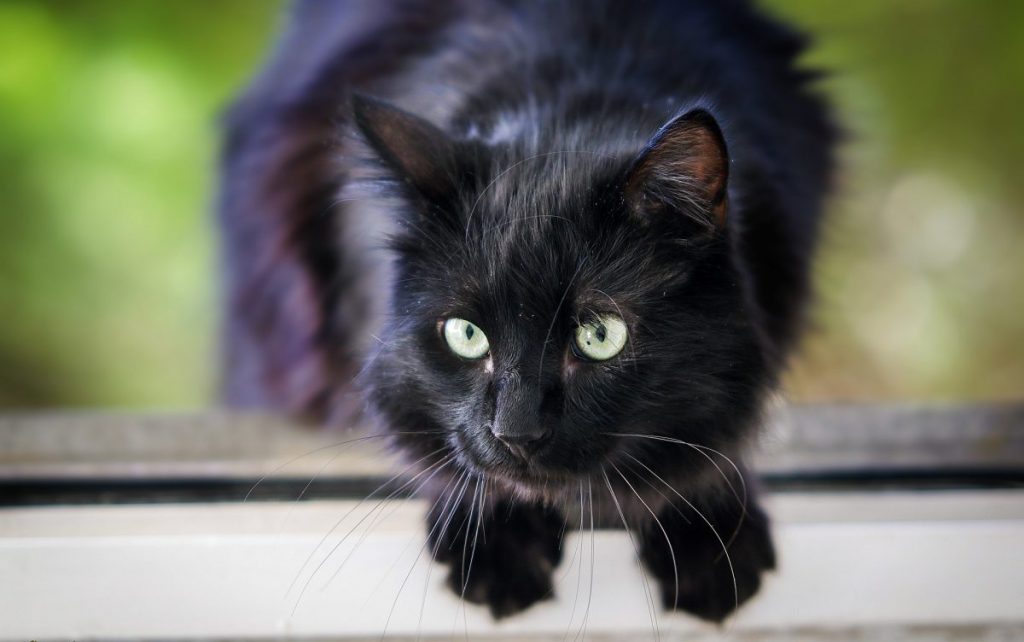Cancer is perhaps the scariest word in the dictionary. Everyone knows someone who has suffered through the disease. It affects friends, family, loved ones and – pets. In fact, cancer is the number one disease-related killer of pets.
One in five cats will develop cancer in their lifetime. Cancer in cats can be difficult to detect, as cats are extremely adept at hiding their symptoms and pain, but catching cancer early is imperative for survival. Your cat will make it hard to do. But don’t let that deter you. Knowing what to look for and staying vigilant can help you spot cancer before it’s too late.
The Most Common Feline Cancers
There are three types of cancers that are most commonly found in cats – skin cancer, breast cancer, and lymphoma.
Lymphoma
A blood cancer that occurs when white blood cells proliferate uncontrollably, lymphoma is the most common type of cancer in cats. The cause of this cancer is unknown, but cats who are infected with feline leukemia and feline immunodeficiency virus (FIV) are more likely to contract the disease.
Skin Cancer
The most common skin cancers in cats are basal cell tumors (also the most common skin cancer in humans), squamous cell carcinoma, and mast cell tumors. Cats with light fur, those who spend most of their time outdoors, and those who live in sunny climates are most at risk for skin cancer.
Fibrosarcoma
Born from tumors in the connective tissue, fibrosarcoma is extremely aggressive. The disease can occur on its own, or at the site of medicine injections in the cat’s body – including vaccines, cortisteroids, antibiotics and insulin.
Signs Your Cat May Have Cancer
There is no single symptom or sign that your cat has cancer. But there are certain symptoms that can tip you off to the possibility cancer is present.
Changes in Behavior
Cats are strange creatures. They’re independent, unpredictable and determined. That’s why it can be difficult to detect behavior changes – and what they mean. But if you notice something off about your cat’s behavior, continue to monitor him, and check for other symptoms.
Loss of Appetite
When your cat fails to get excited when you open his favorite flavor of canned food, something may be wrong. Of course, it doesn’t mean your cat has cancer, but cats don’t stop eating out of protest. There is likely an underlying issue behind your cat’s appetite loss.
Lumps, Bumps and Growths
Cancers reveal themselves in the form of growths and tumors. Check your cat every now and then to see if he has developed any new masses on his body. There are plenty of non-cancerous tumors and growths, but if you find one, it’s always best to have your vet check it out.
Lethargy
Cancer, in a nutshell, is unhealthy cells attacking and destroying healthy ones. Cancer takes its toll on your cat’s body, which can result in an extreme loss of energy. If you notice your cat is moving slowly and is disinterested in activities he normally enjoys, there may be reason for concern.
Coughing and Difficulty Breathing
Coughing and breathing difficulty can be the sign of several different health issues, like feline asthma, heart disease, and lung disease. But it can also be a potential harbinger of cancer. Coughing will usually be accompanied by additional symptoms if cancer is present, but it’s worth keeping an eye on your cat if he has a chronic cough.
Irregular Urination and Defecation Habits
A cat’s body is a finely-tuned machine. When something breaks down, it creates a domino effect on other bodily functions. If your cat is displaying irregular bathroom habits, something is likely wrong. Difficulty urinating or defecating, bloody stool or urine, and frequent bathroom use may be signs of cancer.
Pain
If your cat is experiencing pain in his joints or abdomen and there are no visible injuries, something is wrong. It’s most likely not cancer, but it’s time to schedule a visit with your vet regardless.
Unlike dogs, cats rarely let their humans know that there is something bothering them. You will need to pay extra close attention to your cat if you want to catch signs of cancer early. If nothing else, you’ll get to know your cat better!






